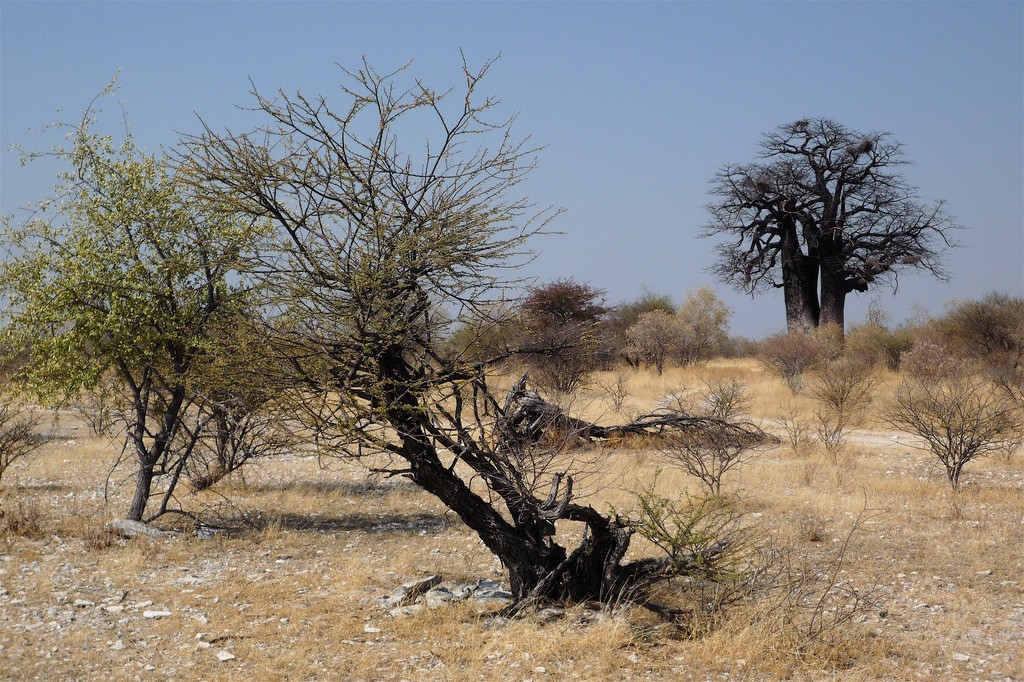What Happens When You Introduce Money to a Culture That’s Never Used It?

This week, The Atlantic has a story about the Ju/’hoansi, a community in Namibia that didn’t start using money until the early 1980s:
When a 200,000-Year-Old Culture Encountered the Modern Economy
Fifty years ago, Ju/’hoansi in Nyae Nyae still hunted and gathered for a living, just as their ancestors had done since the first expansion of modern Homo sapiens across southern Africa around 200,000 years ago.
[…]
To his surprise, [anthropologist Richard Lee] established that the Ju/’hoansi not only managed to feed themselves better than many in the industrialized world, but that they did so on the basis of only around two hours foraging a day, and cheerfully spent the rest of their time on more leisurely pursuits such as napping, playing games, and making art. On the strength of Lee’s findings and the growing weight of evidence from similar societies elsewhere, anthropologists started calling hunter-gatherers “the original affluent society” and turned the established narrative of social evolution on its head.
The article is written by anthropologist James Suzman, whose newest book is Affluence Without Abundance: The Disappearing World of the Bushmen. As he explains, pre-1980s Ju/’hoansi society was based on a literal sharing economy:
[…] the Ju/’hoansi shared their food with one another according to a set of social prescriptions that ensured pretty much everyone, including the young, old, or disabled, got a share. As a result the Ju/’hoansi were also thoroughly egalitarian, mercilessly ribbing anyone that developed delusions of grandeur and seeing no point in accumulating wealth or formalizing systems of exchange. They also enjoyed giving friends ritualistic gifts called hxaro, but in these cases it was the implied affection in the act of giving that was important — the gift itself was more often than not soon re-gifted to someone else.
Then, during apartheid, the South African government denied Ju/’hoansi access to the land and water they needed to survive. The military offered something else in exchange: paying jobs.
Over time, as military cash became part of Ju/’hoan lives, their attitudes to money inevitably began to change. When money was scarce, nobody cared much for it, but the more money that flowed in, the more valuable it became. The sudden influx of cash raised a number of questions that would perplex any hunter-gatherers. Should money be shared like meat or food or private property? And if so, how much and with whom? Was it an appropriate gift, and was a gift of money a loan?
The whole article is fascinating, although it suffers from a lack of Ju/’hoansi perspectives. (An interview about life before and after money would have made sense, but there isn’t one.) The introduction of money, for example, was immediately followed by the introduction of alcohol, which was then followed by conflict and violence.
As Suzman explains, the Ju/’hoansi eventually received access to enough land that they could meet many of their basic needs on their own—but not all of them. They still need money, and many of them are still figuring out what it means to use money in accordance with their values.
Just like the rest of us.
Support The Billfold
The Billfold continues to exist thanks to support from our readers. Help us continue to do our work by making a monthly pledge on Patreon or a one-time-only contribution through PayPal.
Comments